Arm Lift in Cambodia
Search and Compare the Best Clinics and Doctors at the Lowest Prices for Arm Lift in Cambodia

Find the best clinics for Arm Lift in Cambodia
No clinics available
Thailand offers the best prices Worldwide
Price: $ 26

- Home
- Cambodia
Compare Before & After Photos of _procedure_photos.phpArm Lift


Full-side view
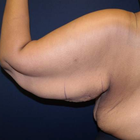
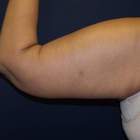
Full-side view
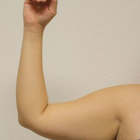
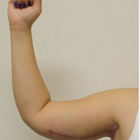
Full-side view
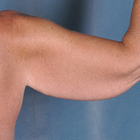
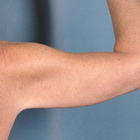
Full-side view
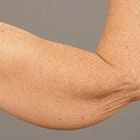
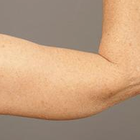
Full-side view
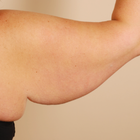
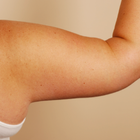
Full-side view
WHY US?
At Medijump, we're making medical easy. You can search, compare, discuss, and book your medical all in one place. We open the door to the best medical providers worldwide, saving you time and energy along the way, and it's all for FREE, no hidden fees, and no price markups guaranteed. So what are you waiting for?

Free

Best Price

Widest Selection

Risk-Free
What you need to know about Arm Lift in Cambodia
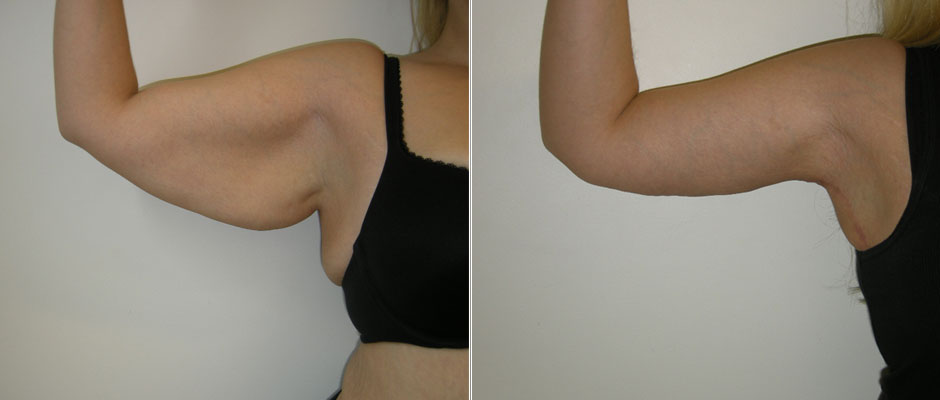
An arm lift, also known as a Brachioplasty, is a cosmetic surgery to treat sagging underarms and the connecting area of the chest wall. The surgery improves the appearance of the under portion of a person’s upper arm. It reduces extra skin, removes excess fat, tightens and smooths the underlying tissue that defines the shape of the upper arm. The surgery can make your upper arms look more defined and toned.
As you get older, your skin changes and becomes loose, particularly the skin on your upper arms. Genetics and significant weight loss also play a role in the development of drooping upper arms. While exercise can strengthen the muscle tone in your upper arm, it cannot correct excess skin that has lost its elasticity.
You might consider this procedure if the undersides of your upper arm appear loose or sagging due to excess skin and fat. Since it can improve your appearance, many people who had the procedure found that it boosted their body image.
In general, good candidates for an arm lift surgery are individuals with significant upper arm skin laxity, individuals who are not significantly overweight, and healthy individuals without medical conditions, as it can increase the risk of surgery.
What is the cost of undergoing the Arm Lift in Cambodia?
The cost of an Arm Lift varies depending on multiple factors. These include the surgeon's fees, which can vary significantly based on the surgeon's experience and geographical location, the cost of the anesthesia, the clinical facility's charges, and any additional expenses such as lab tests and post-surgery garments.
Insurance usually does not cover the cost of an Arm Lift, as it's considered a cosmetic procedure. However, many surgeons offer patient financing plans to make the procedure more affordable. As prospective patients approach this decision, it's vital to remember that the surgeon's experience and your comfort should always take precedence over cost.
How Long Should I Stay in Cambodia for a Arm Lift Procedure?
The length of stay following the arm lifts in Cambodia varies from patient to patient. Some individuals might need one to two nights of hospital stay, especially if the procedure was extensive or if the individual has other chronic health conditions that need monitoring. However, in many cases, individuals will be discharged on the same day when the surgical procedure is completed, contingent on the recovery from anesthesia and initial post-operative stability. It's important that the individual has a support system in place to assist during the first few days. Typically, persons getting an arm lift should expect to stay in the region for a week to two weeks for the initial recovery and follow-up. A longer stay might be necessary if there are complications.
What's the Recovery Time for Arm Lift Procedures in Cambodia?
The recovery period of an arm lift is typically short as long as you follow your surgeon’s postoperative care instruction. You may be able to return to work and resume some light activities within two weeks, and you should be able to return to your normal daily routine in six weeks. The surgeon may get you to wear a compression sleeve for a few weeks to keep your swelling down. However, allow six months before doing any strenuous and athletic activities, such as sport, because it might stretch the incision. The healing time for your swelling may take two to three months. Contact your doctor immediately if you experience shortness of breaths, irregular heartbeat, chest pains, a fever, or redness of the skin.
What does a Arm Lift Procedure Involve?
Before the actual procedure, your plastic surgeon will likely review your medical history and ask you about any medications you are taking or have taken recently. You may be required to do a physical exam to determine the treatment options, a chest X-ray, and an electrocardiogram. You can also discuss your expectations in terms of appearance post-surgery. During this discussion and evaluation, be sure to ask your surgeon questions and tell them your concerns because it is very important to understand all aspects of an arm lift procedure, such as the benefits and risks. If you smoke, your surgeon will ask you to stop around one or two months before the surgery to reduce the risk of complications.
The surgery can be performed in a hospital or an outpatient surgical facility. Your surgeon will start by marking on the underside of your arms where they plan to make incisions. The incision length depends on the amount of excess skin to be removed and generally placed on the inside or the back of the arm. Then, you are given either general or local anesthesia. Your surgeon will recommend the best choice for you.
Guided by the marks on your arms, your surgeon tightens and reshapes the tissue in your upper arms. Then they pulls your skin back over the tissue and secures it with stitches. If you have any excess fat in the area, suction technique (liposuction) may also be used to remove the fat. Finally, your skin is smoothed over the new contours and excess skin is removed. The whole procedure normally takes two to three hours to finish.
What sort of Aftercare is Required for Arm Lift Procedures in Cambodia?
Your surgeon will give you aftercare instructions, which will cover what medications to take and when, how to take care of your wounds, warning signs, and a timeline for follow up appointments. It is important to strictly follow your surgeon’s aftercare instructions. Your surgeon may prescribe painkillers and to prevent wound infections you may need to take oral antibiotics or topical medications. While recovering, it is essential to avoid smoking because smoking slows down the healing process and will increase your risk of infections and permanent scarring. To maintain the result of arm lift surgery, you will need to maintain a stable weight and general fitness.
What's the Success Rate of Arm Lift Procedures in Cambodia?
The success rate of a Arm Lift, such as an arm lift, hinges on factors like the patient's overall health, weight stability post-procedure, and the surgeon's expertise. Ensuring the procedure is performed by a board-certified plastic surgeon can dramatically optimize outcomes. Patient satisfaction post Arm Lift is typically high, with most studies showcasing rates between 80 to 90 percent. This high success rate is often attributed to improved arm contour, enhanced comfort during physical activities, and boosted self-esteem.
However, success is invariably subjective and varies amongst individuals, so it's critical to set realistic expectations whilst bearing in mind that the aim is enhancement, not perfection. Moreover, the occurrence of complications post arm lift procedures is relatively scarce, particularly when under the experienced hands of a renowned surgeon.When the Arm Lift is performed as part of overall body contouring after significant weight loss, the success rates and patient satisfaction tends to be even higher. This is supported by enhanced quality of life experienced by the patients, resultant of simplified daily routines and renewed self-confidence. Overall, the success of an arm lift procedure extends beyond just physical transformation, contributing largely to the individual's psychological well-being.
Are there Alternatives to Arm Lift Procedures in Cambodia?
If you prefer less invasive procedures, some alternative procedures can be used instead of arm lift surgery.
- Laser Skin Tightening is perfect for those with mild to moderate skin laxity. Your upper arms will be treated with a high-power surgical laser that can stimulate collagen production in your skin. It involves no scarring, no downtime, and almost no uncomfortable feelings. Nevertheless, the results appear gradually and are not as effective as an arm lift. You might need to undergo multiple treatments before you get to your desired result.
- Mesotherapy is used to melt fat and tighten skin. A solution containing amino acids, medication, and natural ingredients will be injected into the middle layer of your skin. The effects will be visible after four to eight weeks and it may not be effective if you have a lot of excess skin.
Other alternatives are Vaser liposuction, Lipodissolve, Thermage, and massage therapy.
What Are the Risks and Complications of the Arm Lift?
Like any surgical procedure, an Arm Lift also carries some inherent risks. Some common complications include infections, seromas (pockets of fluid), hematoma (blood accumulating under the skin), and unfavorable scarring. Other risks involve changes in skin sensation, adverse reactions to anesthesia, and dissatisfaction with the overall aesthetic outcome. In some rare cases, blood clots can form which can be a serious health hazard. However, these risks are typically minimized in a well-equipped surgical setting and under the care of a board-certified cosmetic surgeon.
What are the preparatory steps required before undergoing the Arm Lift in Cambodia?
Before undergoing Arm Lift procedure in Cambodia, thorough preparation is necessary to ensure a smoother process and optimal results. Most clinics require pre-assessment consultations to study your medical history and assess your overall health condition. The healthcare provider may conduct some tests, including blood tests or diagnostic imaging, to rule out any unseen conditions. It's crucial for patients to inform about any current medical conditions, allergies, or any medications or supplements they're currently taking.
Smoking and excessive alcohol intake can interfere with the healing process and result in complications after surgery. Therefore, patients may need to abstain from smoking and limit alcohol consumption for a certain period before and after the procedure. It's also advisable to maintain a stable weight and healthy nutritional habits prior to the surgery. On the day of the operation, most clinics suggest that patients come in comfortable, loose clothing.
Whilst the information presented here has been accurately sourced and verified by a medical professional for its accuracy, it is still advised to consult with your doctor before pursuing a medical treatment at one of the listed medical providers
No Time?
Tell us what you're looking for and we'll reachout to the top clinics all at once
Enquire Now

Popular Procedures in Cambodia
Prices Start From $20

Prices Start From $85

Prices Start From $167

Prices Start From $120

Prices Start From $931

Prices Start From $76

Prices Start From $236

Recommended Medical Centers in Cambodia for procedures similar to Arm Lift

- Interpreter services
- Translation service
- Religious facilities
- Medical records transfer
- Medical travel insurance
- Health insurance coordination
- TV in the room
- Safe in the room
- Phone in the room
- Private rooms for patients available

- Interpreter services
- Translation service
- Religious facilities
- Medical records transfer
- Medical travel insurance
- Health insurance coordination
- TV in the room
- Safe in the room
- Phone in the room
- Private rooms for patients available

- Interpreter services
- Translation service
- Religious facilities
- Medical records transfer
- Medical travel insurance
- Health insurance coordination
- TV in the room
- Safe in the room
- Phone in the room
- Private rooms for patients available

- Interpreter services
- Translation service
- Religious facilities
- Medical records transfer
- Medical travel insurance
- Health insurance coordination
- TV in the room
- Safe in the room
- Phone in the room
- Private rooms for patients available

- Interpreter services
- Translation service
- Religious facilities
- Medical records transfer
- Medical travel insurance
- Health insurance coordination
- TV in the room
- Safe in the room
- Phone in the room
- Private rooms for patients available

- Interpreter services
- Translation service
- Religious facilities
- Medical records transfer
- Medical travel insurance
- Health insurance coordination
- TV in the room
- Safe in the room
- Phone in the room
- Private rooms for patients available

- Interpreter services
- Translation service
- Religious facilities
- Medical records transfer
- Medical travel insurance
- Health insurance coordination
- TV in the room
- Safe in the room
- Phone in the room
- Private rooms for patients available

- Interpreter services
- Translation service
- Religious facilities
- Medical records transfer
- Medical travel insurance
- Health insurance coordination
- TV in the room
- Safe in the room
- Phone in the room
- Private rooms for patients available
Arm Lift in and around Cambodia
Introduction
Perched in the heart of Southeast Asia, nestled between Thailand and Vietnam, lies Cambodia — a dynamic blend of ancient and contemporary worlds that makes for an intriguing adventure. Dominating its list of attractions is the globally-renowned Angkor Wat, embroidered by lush jungles.
It is the soul of Cambodia — its vibrant culture, warm inhabitants, profound historical heritage, stunning coastlines, delightful cuisine, and spirited nightlife — that gives this nation its unique charm. Each element, individually fascinating and collectively harmonious, weaves a magical tapestry that is Cambodia.
Over recent years, Cambodia has strategically bolstered its healthcare infrastructure, aiming to appeal to a global patient community. In this endeavor, the country has witnessed several of its hospitals forging partnerships with institutions from close-by countries, with Thailand being a significant partner.
These strategic alliances have been key in establishing state-of-the-art healthcare facilities across Cambodia. These healthcare establishments strive to cater to a diverse array of medical needs, ensuring the delivery of world-class, professional care that meets, if not surpasses, internationally accepted standards.
Cambodia is relentlessly driving efforts to enhance its healthcare sector, with one main goal - to give patients access to top-notch medical care at costs significantly lower than those in other Southeast Asian nations, Singapore being a prime example.
This strategic approach is geared towards attracting patients from regions like Laos, Taiwan, and China. The essence of this approach is to establish Cambodia as a major healthcare destination that offers high-quality medical services, all within a budget-friendly framework that doesn’t strain patients' finances.
Popular Cities and Regions in Cambodia
Phnom Penh is the capital of Cambodia, as well as the main medical tourism destination in the country. Once the ‘Pearl of Asia,’ this bustling city is now filled with bustling bars, historical architecture, vibrant café culture, a world-class food scene, and a glimmering Royal Palace.
Tourists venturing into Cambodia are invited to traverse the myriad attractions this enchanting nation has to offer. A must-visit is the National Museum of Cambodia which houses the country's extensive cultural history and art. For those who seek a deeper insight into Cambodia's past, the Tuol Sleng Genocide Museum provides a poignant yet important glimpse into the darker chapters of its history. In addition, the Royal Palace stands as a testament to Cambodia's architectural grandeur, drawing admiration from visitors across the globe. Another gem to explore in Phnom Penh is the Silver Pagoda, a unique blend of tranquility and exquisite craftsmanship, making for an unforgettable experience.
Moving beyond the capital city of Phnom Penh, Siem Reap emerges as another popular destination in the Cambodian travel circuit. This city, bustling with energy and soaked in history, captures the diverse ethos of Cambodia in its vibrant art, architecture, and local life. Inclusion of Siem Reap in any Cambodian itinerary lends an additional layer of cultural depth, making the exploration of this intriguing nation an even more enticing proposition. As such, whether it's diving into the past or experiencing the dynamic present, Cambodia offers a varied palette of experiences to delve into.
It’s where the fascinating, UNESCO-listed Angkor Wat is located. Aside from Angkor Wat, Siem Reap also offers other attractions, such as the Angkor Silk Farm, Wat Bo, War Museum, and Senteurs d’Angkor Botanic Garden. Those who want to relax on a beach should visit Sihanoukville. It was once a quiet beach town, but now it has become a modern up-and-coming holiday destination.
Transport in Cambodia
Phnom Penh International Airport stands as the largest and most bustling airport in Cambodia. Acting as a critical transportation nexus, it facilitates both domestic and international air travel. The airport offers numerous flight connections to various cities across Asia, making it a convenient choice for international tourists. Besides being a gateway into Cambodia, it also serves as a starting point for internal travel.
For tourists looking to cover various parts within the country swiftly, opting for domestic flights is a time-efficient choice. These flights are well-linked, providing easy access to different parts of this captivating country. Despite being the fastest mode of travel, they maintain reasonable fares, ensuring that the journey is equally enjoyable as the destination.
As one navigates within the cities, there is a disparity between the modes of transportation used for intra-city and inter-city travel. While trains and buses are the preferred options for traveling between different cities due to their affordability, city-based transportation adopts a different palette altogether. For daily city commutes and quick visits to local sights, taxis, tuk-tuks, and motorbikes are the most viable options. They're not only readily available but also allow for an intimate view of Cambodian city life. This dynamic and efficient transportation network significantly enhances the convenience of exploring Cambodia's stunning expanse.
Visas in Cambodia
- Citizens of 9 countries, including Laos and Singapore, can visit and stay in Cambodia for up to 30 days without a visa.
- Citizens of most other countries can apply for a visa on arrival or eVisa.
- All visitors must have a passport valid for at least six months beyond their intended date of departure from Cambodia.
Visa on arrival
- A visa on arrival can be obtained at any of the following Cambodian airports: Phnom Penh International Airport (PNH), Siem Reap International Airport (REP), and Sihanoukville International Airport (KOS).
- The visa on arrival fee is USD 30.
- Visitors who obtain a visa on arrival must have a valid passport and two passport-size photos.
eVisa
- An eVisa can be obtained online at the website of the Cambodian government.
- The eVisa fee is USD 35.
- Visitors who obtain an eVisa must have a valid passport and a digital photo.
Weather in Cambodia
Cambodia is blessed with a warm climate throughout the year, making it a destination for all seasons with temperatures seldom falling below 20°C. Cambodian weather is generally categorized into two primary seasons: wet and dry. The wet season, spanning from May to October, is marked by episodic showers during daytime hours, adding to the country's tropical charm.
The dry season, commencing from November and extending up to April, is typified by agreeable and sunny weather conditions, making it an ideal time for travel and exploration. However, it is worth noting that during the peak of the dry season, specifically in March, temperatures can climb up to a sweltering 35°C. Despite the somewhat extreme conditions, the resplendent beauty of the country remains undeterred, with Cambodia promising a riveting experience regardless of the season.
Additional Info
- Local Currency: Cambodian riel (KHR) is the official currency and 1 USD converts to approx. 4,161.63 KHR. However, USD is widely accepted.
- Money & Payments: ATMs are widely available and sometimes dispense US dollars. Credit cards are accepted in major cities. Tipping is expected and appreciated.
- Local Language: The official and mainly spoken language is Khmer. Some people also speak Vietnamese and Chinese. English is mostly used in tourist areas and major cities.
- Local Culture and Religion: About 97% of the population follows Theravada Buddhism. Islam, Christianity, and tribal animism make up the remaining 3%.
- Public Holidays: Victory over Genocide Day, Khmer New Year, King’s Birthday, Day of Remembrance, and Independence Day are some of the public holidays celebrated in Cambodia.
Popular Searches
- Plastic Surgery in Thailand
- Dental Implants in Thailand
- Hair Transplant in Thailand
- Breast Augmentation Thailand
- Gastric Sleeve in Thailand
- Gender Reassignment Surgery in Thailand
- Laser Hair Removal in Bangkok
- Botox in Bangkok
- Dermatology in Bangkok
- Breast Augmentation in Bangkok
- Coolsculpting in Bangkok
- Veneers in Turkey
- Hair Transplant in Turkey
- Rhinoplasty in Turkey
- Stem Cell Therapy in Mexico
- Rhinoplasty in Mexico
- Liposuction in Mexico
- Coolsculpting in Tijuana
- Rhinoplasty in Korea
- Scar Removal in Korea
- Gastric Sleeve in Turkey
- Bone Marrow Transplant in India
- Invisalign in Malaysia
- Plastic Surgery in the Dominican Republic
- Tummy Tuck in the Dominican Republic
- Plastic and Cosmetic Surgery in Poland
- Rhinoplasty in Poland
- Hair Implant in Poland
- Dental Implants in Poland
- IVF in Turkey